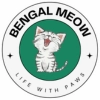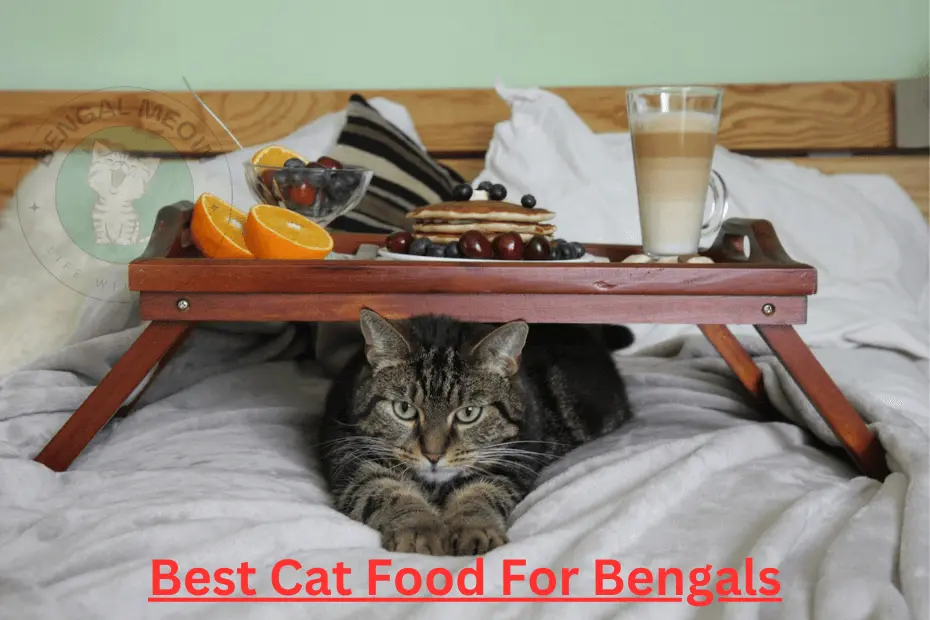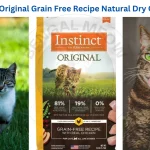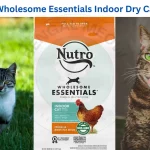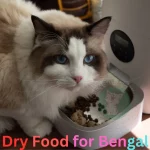The Ultimate Guide to Choosing the Best Cat Food for Bengals – Top 10 Picks for a Healthy and Happy Companion
Welcome to our comprehensive guide on the best cat food for Bengals! If you are a proud owner of a Bengal cat, you already know they are unique, intelligent, and lively companions. To keep your Bengal happy and healthy, it is essential to provide them with the right nutrition.
In this article, we’ll explore the 10 best cat food for Bengals, providing you with the knowledge to make informed decisions about your feline friend’s diet
1. High-Protein Formulas for the Carnivorous Bengal:
Bengal cats, being obligate carnivores, thrive on diets rich in high-quality animal-based proteins. Look for cat food products where the primary ingredient is a premium meat source like chicken, turkey, or fish. These proteins provide essential amino acids, promoting strong muscles and a healthy body weight. Always ensure that the cat food you choose contains a high percentage of animal-based proteins to meet your Bengal’s unique dietary requirements.
Moreover, high-protein formulas for Bengals also support their active and energetic nature. The protein content helps fuel their playful behavior and supports lean muscle mass, making them agile and graceful companions.
Additionally, the right protein-to-fat ratio in cat food ensures your Bengal maintains an ideal body condition and prevents obesity, which can be a concern for some indoor cats. Overall, selecting a cat food rich in animal-based proteins is a crucial step in providing your Bengal with the nutrients they need to thrive and enjoy their adventurous life.
Read More Royal Canin Bengal Cat Food: A Nutritional Solution for Your Feline Companion
2. Grain-Free Options for Sensitive Bengals:
Some Bengals may develop sensitivities or allergies to grains commonly found in cat food. To avoid potential digestive issues or skin problems, consider grain-free cat food options. These formulas utilize alternative sources of carbohydrates such as sweet potatoes or peas, providing your Bengal with a balanced and nutritious meal. Always check the ingredient list to confirm that the cat food is entirely grain-free to cater to your Bengal’s specific needs.
Grain-free best cat food for bengals can offer numerous benefits for sensitive Bengals. Removing grains from the diet can reduce the risk of allergies and intolerances, ensuring your feline friend enjoys mealtime without any discomfort. Additionally, grain-free formulas often have a lower carbohydrate content, which may be beneficial for Bengals prone to weight gain.
As active and playful cats, Bengals need a diet that supports their energy levels and maintains a healthy weight. By choosing grain-free options, you can contribute to their overall well-being and ensure they have the best chance at a healthy, happy life.
Read More Discover the Nutritional Power of Blue Wilderness High Protein Grain Free Cat Food
3. The Raw Food Diet: A Natural Choice for Bengals:
The raw food diet has gained popularity among Bengal owners due to its resemblance to the diet of wild cats. It typically consists of uncooked meat, bones, and organs. Before transitioning your Bengal to a raw food diet, consult with your veterinarian to ensure it fulfills all their nutritional requirements. When prepared and balanced correctly, the raw food diet can offer numerous health benefits, including healthier skin and coat, improved digestion, and increased energy levels.
Feeding your Bengal a raw food diet aligns with their natural dietary preferences. As obligate carnivores, Bengals in the wild primarily consume meat, and a raw food diet seeks to replicate this natural diet as closely as possible. Raw food provides essential nutrients in their most natural form, which can lead to improved nutrient absorption and utilization. It may also help reduce the risk of certain health issues common in domestic cats, such as dental problems and obesity.
However, it’s essential to follow proper food handling and safety guidelines when feeding a raw diet to minimize the risk of foodborne illnesses. By choosing the raw food diet with expert guidance, you can support your Bengal’s overall health and well-being, making mealtime an exciting and nutritious experience for them.
Read More Hill’s Science Diet Dry Cat Food: Nourishing Your Indoor Adult Cat
4. Novel Protein Formulas to Avoid Allergies:
Over time, some Bengals may develop allergies to common proteins like chicken or beef. In such cases, switching to a novel protein cat food can be a viable solution. Novel protein sources, such as venison, duck, or rabbit, are less likely to trigger allergic reactions and can provide a welcome change in taste for your Bengal. Always monitor your cat’s response to the new protein source and seek veterinary advice if needed.
Identifying and avoiding allergens is crucial for Bengals with food sensitivities. Novel protein formulas introduce your Bengal to proteins they have not been exposed to before, reducing the risk of allergic reactions. If your Bengal shows signs of food allergies, such as itching, vomiting, or diarrhea, novel protein cat food can help alleviate their symptoms and improve their overall quality of life.
Additionally, these formulas often contain limited ingredients, making them easier to digest and reducing the likelihood of gastrointestinal upset. Providing your Bengal with novel protein best cat food for bengals can be a simple and effective way to ensure they receive the nourishment they need without experiencing discomfort or adverse reactions.
Read More The Power of Wellness CORE Natural Grain Free Dry Cat Food
5. The Importance of Taurine for Bengals:
Taurine is an essential amino acid for cats, including Bengals. It plays a vital role in maintaining heart health, proper vision, and overall well-being. When choosing cat food, ensure it contains adequate levels of taurine to support your Bengal’s optimal health. High-quality cat food products designed for Bengals typically include sufficient taurine levels, but it’s always good to double-check the label.
Taurine is a crucial nutrient for Bengals, as well as all cats. Unlike some other animals, cats cannot produce taurine on their own, making it necessary to obtain it through their diet. A deficiency in taurine can lead to serious health issues, including heart problems and vision impairment.
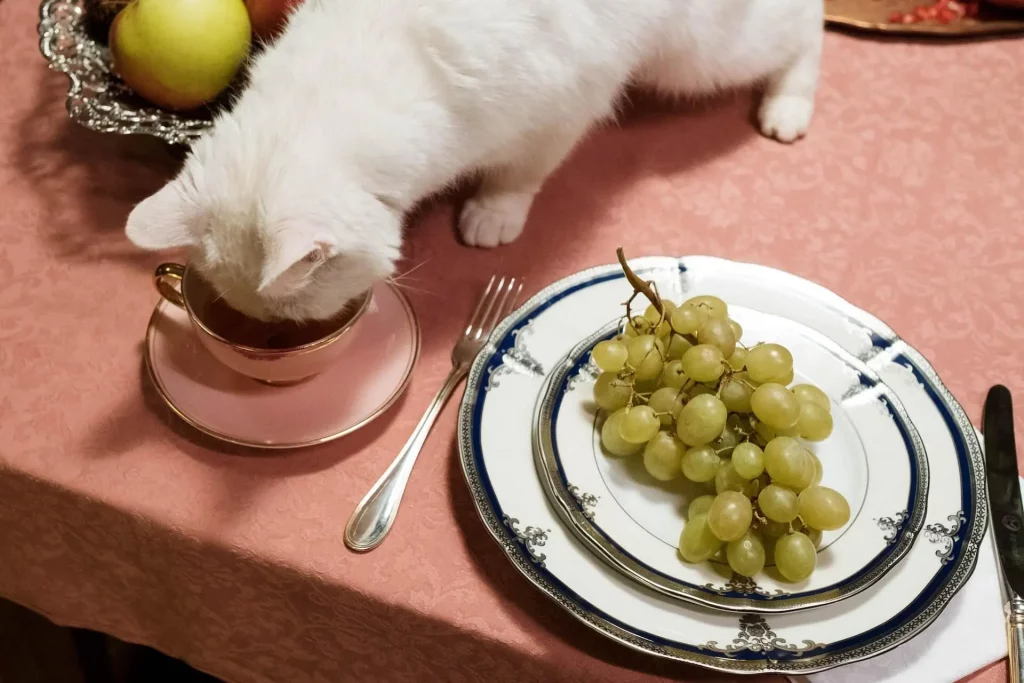
By choosing best cat food for bengals with an appropriate taurine content, you can help safeguard your Bengal against these potential health concerns and maintain their overall well-being. As responsible pet owners, providing the necessary nutrients, including taurine, is essential for ensuring your Bengal lives a long, happy, and healthy life.
Read More Merrick Purrfect Bistro Grain Free Dry Cat Food
6. The Benefits of Wet Best Cat Food for Bengals:
In addition to dry kibble, incorporating wet cat food into your Bengal’s diet can be highly beneficial. Wet cat food has a higher moisture content, helping to keep your Bengal hydrated and supporting kidney function. Moreover, wet cat food often contains a higher proportion of animal-based proteins and fewer carbohydrates, aligning better with your Bengal’s natural dietary needs.
Wet cat food offers several advantages for Bengal cats, particularly when it comes to hydration. Bengals may not drink water as frequently as necessary, making them prone to dehydration. Wet cat food helps ensure they consume enough water as part of their diet, promoting healthy kidney function and reducing the risk of urinary tract issues.
Additionally, the higher meat content in wet cat food provides essential amino acids, such as taurine, which are vital for your Bengal’s health. Including wet cat food as part of their diet can also add variety to mealtime, making it more enjoyable and satisfying for your Bengal companion.
Read More Instinct Original Grain Free Recipe Natural Dry Cat Food
7. Avoiding Artificial Additives and Fillers:
When selecting cat food for your Bengal, carefully read the ingredient list to avoid products containing artificial preservatives, flavors, and colors. These additives can be harmful to your cat’s health in the long run. Opt for cat food brands that use natural and high-quality ingredients, providing your Bengal with the best possible nutrition.
Artificial additives and fillers can be detrimental to your Bengal’s health and well-being. Preservatives, such as BHA and BHT, have been linked to potential health concerns in cats, and some artificial flavors and colors may not provide any nutritional benefits. Instead, focus on cat food brands that use natural preservatives, such as tocopherols (Vitamin E), and real, recognizable ingredients.
High-quality cat food is free from unnecessary fillers like corn, wheat, and soy, which offer little nutritional value for cats. By choosing cat food with transparent and natural ingredients, you can ensure your Bengal receives a wholesome and balanced diet, promoting their overall health and vitality.
Read More Unlocking the Power of Nutro Wholesome Essentials Indoor Dry Cat Food
8. Limited Ingredient Diets for Bengals with Food Sensitivities:
Bengals with food sensitivities can benefit from limited ingredient diets (LID). These cat food formulas contain fewer ingredients, making it easier to identify and avoid potential allergens. By providing a simplified diet, LID cat foods help reduce the risk of digestive issues and skin irritations, ensuring your Bengal stays comfortable and healthy.
Limited ingredient diets are an excellent option for Bengals with known or suspected food sensitivities. These formulas eliminate common allergens and focus on a single source of animal protein and a limited number of carefully selected ingredients. By eliminating potential triggers, you can significantly reduce the risk of allergic reactions or intolerances, giving your Bengal the best chance at a symptom-free life.
Limited ingredient diets also offer the added benefit of being highly digestible, easing the burden on your Bengal’s gastrointestinal system and ensuring they receive the maximum nutritional benefit from their meals. As a result, your Bengal will feel more comfortable, have healthier skin and coat, and experience fewer digestive issues, contributing to their overall well-being and happiness.
Read More Irresistibly Delicious: Why Cats Love Canidae Grain Free Pure Dry Cat Food
9. Age-Appropriate Nutrition for Bengals:
As your Bengal ages, their nutritional needs change too. Kittens require a diet that supports their growth and development, with higher levels of proteins and essential nutrients. On the other hand, senior Bengals may benefit from cat food formulated to support joint health and maintain an ideal weight. Transition your Bengal to age-appropriate cat food to ensure they receive the necessary nutrients at every life stage.
Properly tailoring your Bengal’s diet to their life stage is essential for their health and vitality. Kittens need higher levels of proteins, fats, and essential nutrients to support their rapid growth and development. Look for cat food specifically labeled as “kitten” to ensure it meets their unique requirements. As your Bengal matures, transitioning them to adult cat food with balanced nutrition is crucial to maintaining their overall health.
For senior Bengals, cat food formulated for mature cats often contains added nutrients such as glucosamine and chondroitin to support joint health and mobility. By providing age-appropriate cat food, you can support your Bengal’s specific needs throughout their life journey, ensuring they remain active, playful, and happy at every stage.
Read More The Ultimate Guide to Royal Canin Urinary SO Cat Food Alternatives
10. Transitioning Your Bengal to a New Cat Food:
When introducing a new best cat food for Bengals, do so gradually over the course of 7 to 10 days. Start by mixing a small amount of the new food with their existing food and gradually increase the proportion of the new food. This method allows your Bengal to adjust to the new diet without upsetting their stomach and ensures a smooth transition.
A gradual transition to a new cat food is essential to prevent digestive upset and ensure your Bengal accepts the new diet more readily. Cats can be creatures of habit, and sudden changes in their diet may lead to gastrointestinal disturbances. By introducing the new cat food gradually, you allow your Bengal’s digestive system time to adapt to the new ingredients, reducing the likelihood of vomiting, diarrhea, or other digestive issues.
Take note of your Bengal’s response during the transition period, and if you notice any adverse reactions, consult your veterinarian for further guidance. Once the transition is complete, you can enjoy the peace of mind that your Bengal is receiving the best nutrition possible from their new cat food.
Read More Unveiling the Best Dry Food for Bengal Cats: Choose Wisely for Optimal Health!
FAQs for Best Cat Food For Bengals
Q: What should I look for in the best cat food for my Bengal?
The best cat food for Bengals should have a high protein content, with the primary ingredient being a quality meat source like chicken, turkey, or fish. Look for grain-free options, especially if your Bengal has food sensitivities. Additionally, ensure the cat food contains essential nutrients like taurine, which is crucial for your Bengal’s heart health and vision.
Q: Can I feed my Bengal a raw food diet, and what are the benefits?
Yes, you can feed your Bengal a raw food diet, but it requires careful preparation and research. The raw food diet aims to mimic a cat’s natural diet in the wild and can offer benefits such as healthier skin, a shiny coat, and improved digestion. However, it’s essential to consult with your veterinarian to ensure the diet meets all your Bengal’s nutritional needs.
Q: My Bengal has allergies. What type of cat food should I consider?
If your Bengal has allergies, consider switching to a novel protein cat food. Novel proteins, such as venison or duck, are less likely to trigger allergic reactions in cats. Additionally, look for limited ingredient diets (LID) that contain fewer potential allergens, helping to alleviate your Bengal’s allergy symptoms.
How do I transition my Bengal to a new cat food successfully?
To transition your Bengal to a new cat food, do it gradually over 7 to 10 days. Start by mixing a small amount of the new food with their current food and gradually increase the proportion of the new food each day. This gradual approach helps prevent stomach upset and allows your Bengal to adjust to the new diet more comfortably.
Conclusion for Best Cat Food For Bengals:
Choosing the best cat food for Bengals is essential for their health, well-being, and happiness. By considering high-protein formulas, grain-free options, and individual dietary needs, you can provide the ideal nutrition for your Bengal cat.
Whether you opt for a commercial cat food or a raw food diet, always prioritize their health and consult with your veterinarian for personalized recommendations. With the right cat food, your Bengal companion will be a healthy, vibrant, and joyful member of your family for years to come.
